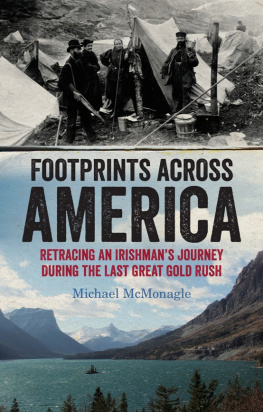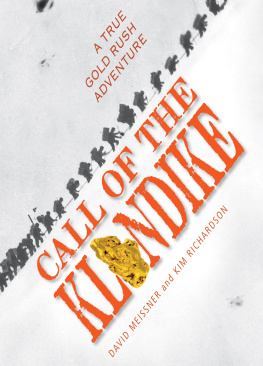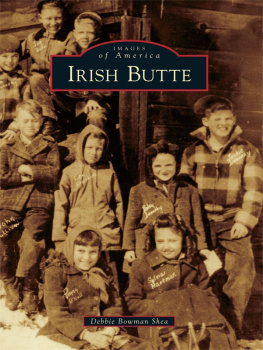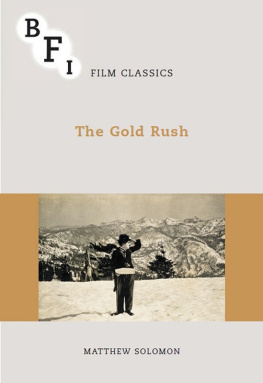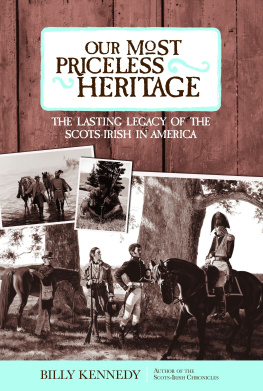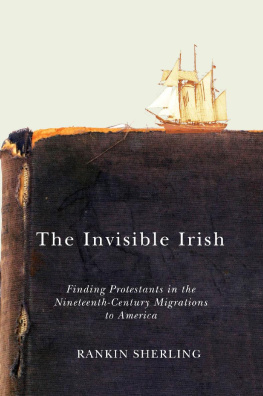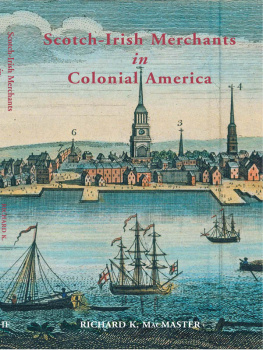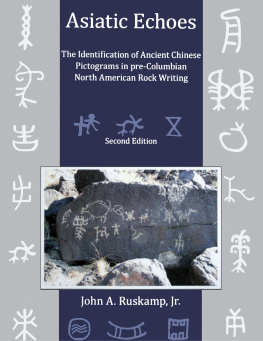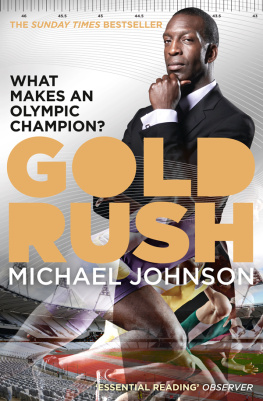Michael McMonagle was born in 1953. A graduate of University College Dublin and University of Dundee, he has worked in community development and as a manager of childrens services within the Health Service Executive. He is currently a director of the Lifestart Foundation and chairperson of Tir Boghaine Teo. His interests include sea kayaking, cycling, hiking, wildlife, trees and conservation. He lives with his family in Mountcharles, County Donegal. His previous travel book is called Walking the Back Roads: A Journey from Donegal to Clonmacnoise (Appletress Press, 2008).
Footprints Across America
Retracing an Irishmans Journey During the Last Great Gold Rush
Michael McMonagle
Published by
Orpen Press
Lonsdale House
Avoca Avenue
Blackrock
Co. Dublin
Ireland
e-mail: info@orpenpress.com
www.orpenpress.com
Michael McMonagle, 2013
Paperback ISBN 978-1-909895-00-3
ePub ISBN 978-1-909895-28-7
Kindle ISBN 978-1-909895-27-0
A catalogue record for this book is available from the British Library. All rights reserved. No part of this publication may be reproduced, stored in a retrieval system or transmitted in any form or by any means, electronic, mechanical, photocopying, recording or otherwise, without the prior, written permission of the publisher.
This book is sold subject to the condition that it shall not, by way of trade or otherwise, be lent, resold, hired out, or otherwise circulated without the publishers prior consent in any form of binding or cover other than that in which it is published and without a similar condition including this condition being imposed on the subsequent purchaser.
For all emigrants and refugees who, like Mic Mac Gabhann, have crossed a bridge of tears in their lives.
Travel writers always carry a debt of gratitude to strangers they meet along the way. This book would not be possible without them.
Friends and family have helped shape this book. Special thanks to my family Terry, Eoghan, Aoife and Crna, and to the observations of Kevin Montgomery, Dr Aisling Gillen, Fatemeh Movahedi, Keith Corcoran, Marie Sundberg, Winnifred McNulty, Richard Boggs and Catherine Breslin.
All at Orpen Press have done a great job in bringing this book to fruition, especially Eileen OBrien and Elizabeth Brennan.
Thanks to John Hearne who edited this book with a discerning and sympathetic eye.
Sen hEochaidh brought the story of Mic Mac Gabhann to the world. This enriched our understanding of the Irish emmigration story. Valentin Iremonger brought the story to a wider audience through his authentic translation of Rotha Mr an tSaoil into English.
The author is grateful to Horslips and Barry Devlin for permission to use a quote from their song, The Wrath of the Rain.
Where have they gone to, those faded faces,
Those fierce moustachioed men?
Excerpt from The Wrath of the Rain by Horslips, Aliens (1977, Oats/Horslips Records) Copyright 1977, Horslips. Reproduced with permission.
Where have they gone to, those faded faces,
Those fierce moustachioed men?
Excerpt from The Wrath of the Rain by Horslips, Aliens (1977, Oats/Horslips Records) Copyright 1977, Horslips. Reproduced with permission.
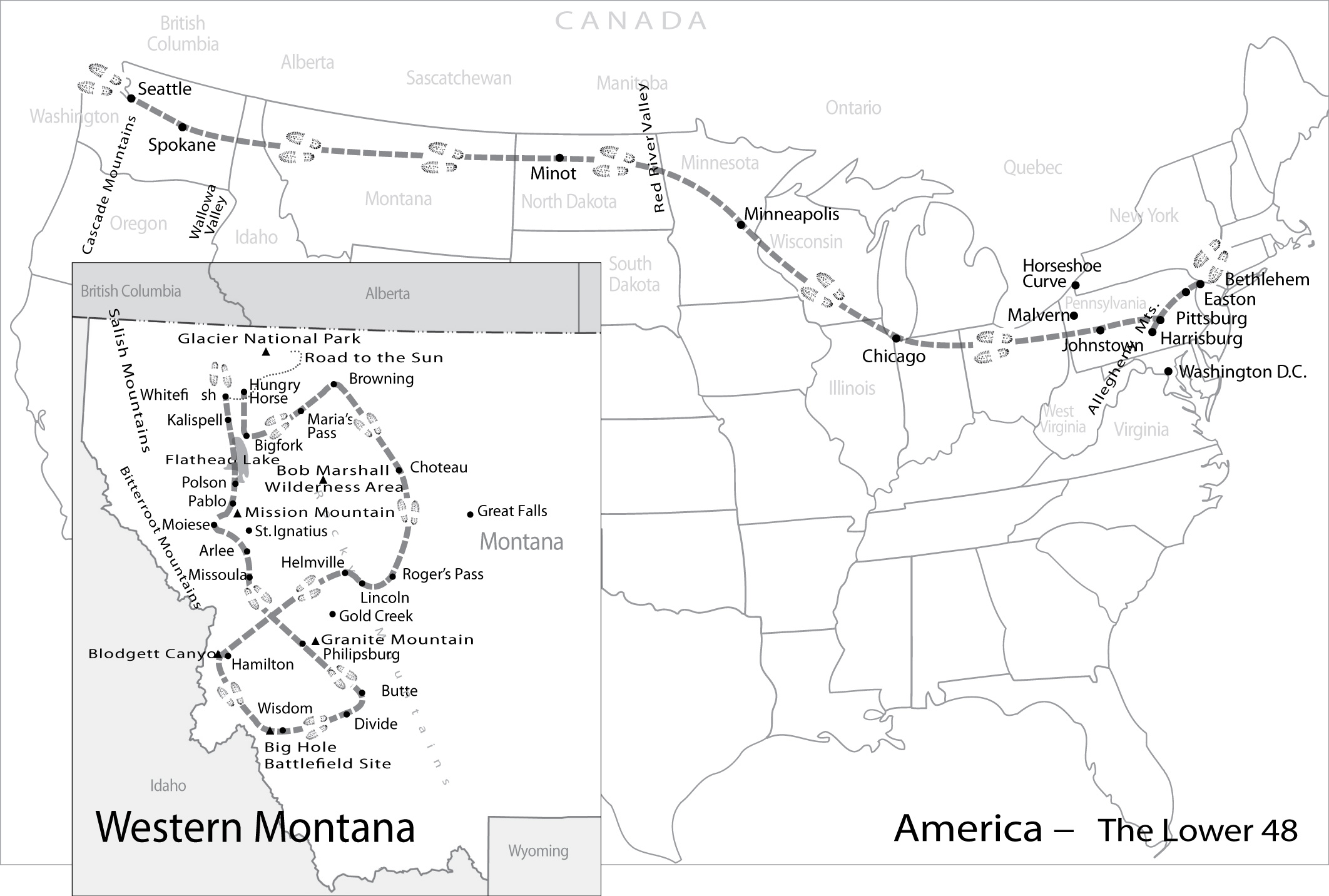

On a bright March day, I was walking with my son, Eoghan, through the rugged terrain of West Donegal. We had left Magheroarty on the coast and were heading for Derry, fifty miles away. With the cone of Errigal at our backs and the bleak craggy bulk of Muckish Mountain in front of us, we stopped for something to eat at a place called The Bridge of Tears. Traditionally this was where emigrants from West Donegal bade farewell to family and friends when leaving for America. The group would halt just before the bridge, while the emigrant would cross alone. Family and friends would watch until he or she disappeared from view, knowing that it was unlikely they would ever see their loved one again.
A book called Rotha Mr an tSaoil , translated as The Big Wheel of Life , had brought me to this place. It was a book that had grabbed my attention as a boy, and had kept me awake during Irish class. It was full of adventures in remote and spectacular locations, places a boy could only dream about. It documented the life of a man called Mic Mac Gabhann, who in 1885, aged nineteen, took his courage in his hands and left to seek his fortune in America. He too walked across this bridge, leaving behind kith, kin and hard times on a small, stony farm at the edge of the Atlantic. Along with countless others in a Europe hit by war, poverty, religious persecution and the effects of industrial revolution, he was drawn by that beacon of hope America.
Rotha Mr an tSaoil tells the story of Mics journey from Derry to New York and on to Pennsylvania, where he worked on the canals and in the famous steel mills of Bethlehem. The lure of silver and copper brought him across the Great Plains to the Rocky Mountains of Montana where he spent eleven years mining in Granite, Butte, Gold Creek and on the slopes of Old Baldy Mountain. When he heard that there was gold in the Klondike, he gathered his few belongings and made his way to Seattle. From there he took a steamer north to the mouth of the Yukon River in Alaska, then journeyed for another two thousand miles by boat and on foot to Dawson City in the Klondike.
He had many escapades along the way, and met people from all parts of the globe, including Native American tribes, miners, chancers and bandits. He experienced extreme cold, frostbite, dangerous working conditions, grizzly bears and mountain lions. He crossed one of the most pristine wildernesses on earth, and learned how to survive.
Boom and bust were as common in Mics time as they are today. The 1890s in America were often called the reckless decade. Banks collapsed, businesses folded and, in the hard times that followed, people suffered desperately. This was the end of the frontier era. The Indian Wars were coming to an end, the Native Americans were being forced onto reservations, the buffalo were being slaughtered and the golden era of the cowboy dawned and dwindled. Then, as now, the same big wheel of life kept on turning.
I had decided to give life to my dream as a boy. I was going to chase Mics fading footprints across America and onto the Klondike. His dream was fuelled by the prospect of gold and silver. Mine, by curiosity and a desire to glimpse the wonders he encountered and to see how the world he passed through had changed.
I crossed America by bus and train, drove around Montana, hiked in the mountains and took a train to the port of Seattle. I flew to Anchorage, Alaska and travelled by train, small plane and minibus to the Klondike. I cycled in the hills in search of Mics gold claim and kayaked on the Yukon River. I followed my nose on the journey and, as a consequence, interesting new worlds and people opened up to me.
This is my story.
Your ticket is out of date.
What do you mean, out of date?
You were scheduled to travel on the 1st of October and today is the 2nd.

